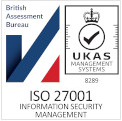In today’s dynamic threat landscape, security professionals, event organisers, and venue owners play a pivotal role in safeguarding public spaces and ensuring the safety of individuals.
Last week, 5th February 2024 – the UK Government announced the launch of a further public consultation on the Terrorism (Protection of Premises) Bill. The Bill is also known as ‘Martyn’s Law’ in tribute to Martyn Hett, who was tragically killed alongside 21 others in the Manchester Arena terrorist attack in 2017, it aims to mandate specific security measures for venues to mitigate terrorist threats and minimise harm. The requirements imposed on venues will be tailored to their capacity, with larger venues falling into the enhanced tier and smaller ones into the standard tier. This 6-week consultation is for an updated approach to the standard tier, premises with a capacity of up to 799.
Figen Murray, the mother of Martyn Hett, is dedicated to honouring her son’s memory by advocating for peace, kindness, and tolerance. She is also actively involved in pursuing concrete measures to prevent other families from experiencing the same tragic loss hers did. Murray emphasised the significance of the ongoing consultation, stating, “This step is vital before formally introducing Martyn’s Law to Parliament.”
While the UK’s recent update of the Protect Duty legislation may be specific to its jurisdiction, its underlying principles resonate deeply with professionals worldwide. Here’s why security professionals, event organisers, and venues need to embrace the principles of the Protect Duty to enhance security everywhere:
Heightened Vigilance: As guardians of public safety, security professionals understand the importance of vigilance in identifying and mitigating security threats. The principles outlined in the Protect Duty underscore the need for heightened vigilance and proactive measures to deter potential threats, ensuring a secure environment for all.
Comprehensive Risk Assessment: Event organisers and venue owners are well aware of the diverse range of risks associated with hosting gatherings and managing public spaces. By conducting comprehensive risk assessments and implementing tailored security measures, they can effectively address vulnerabilities and mitigate potential threats, in line with Protect Duty’s emphasis on risk management.
Collaborative Approach: In the face of evolving security challenges, collaboration is key. Security professionals, event organisers, and venues must work together, sharing knowledge, resources, and best practices to enhance protective security measures. The principles of collaboration embedded in the Protect Duty foster a unified front against security threats, promoting a safer environment for all stakeholders.
Proactive Security Measures: The Protect Duty advocates for a proactive approach to security, emphasising prevention and preparedness. By implementing proactive security measures, such as enhanced screening protocols, surveillance systems, and staff training programs, professionals can effectively mitigate security risks and respond swiftly to emerging threats.
Resilience and Adaptability: Understanding the importance of resilience and adaptability in the face of uncertainty. The principles of resilience enshrined in the Protect Duty empower event professionals to anticipate, adapt to, and recover from security incidents, ensuring continuity of operations and minimal disruption to stakeholders.
The points outlined above underscore that while the UK’s Protect Duty legislation may be specific to its jurisdiction, its underlying principles have global relevance for security professionals, event organisers, and venues. By embracing the principles of heightened vigilance, comprehensive risk assessment, collaboration, proactive security measures, and resilience, professionals can enhance security everywhere, fostering a safer and more secure environment for all.
Together, let’s uphold the principles of the Protect Duty and strengthen global security for generations to come.





![EAS-Accredit-300dpi[22]](https://www.accredit-solutions.com/wp-content/uploads/2024/01/EAS-Accredit-300dpi22-300x156.png)

